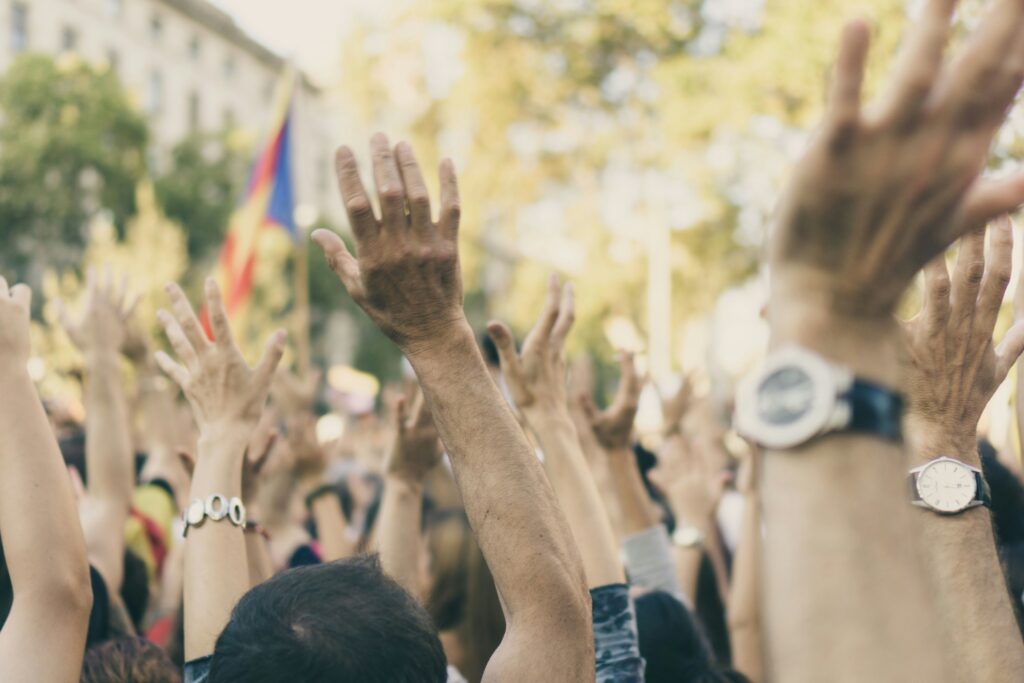Magdeburg far-right sentiment: A deadly car-ramming attack at Magdeburg’s Christmas market in December has caused widespread fear and anger. Advocacy groups report a dramatic rise in anti-migrant sentiment. Migrants now feel increasingly unsafe in the city.
The Attack and Its Impact
On December 18, a Saudi-born doctor, living in Germany since 2006, drove his car into the crowded market. He killed five women and a nine-year-old boy. More than 200 people suffered injuries in the attack.
Authorities have now arrested the suspect. Although he does not fit the usual profile of extremist attackers, the event has fueled right-wing rhetoric. Far-right protests have grown, and racial hostility has surged throughout the city.
Far-Right Protests and Increased Hate Crimes – Magdeburg far-right sentiment
The day after the attack, a large far-right protest took place in Magdeburg. Since then, the number of racist incidents has skyrocketed. The German-Syrian Cultural Association reports that hate crimes in the city have increased by over 70%.
Saeeid Saeeid, a Syrian migrant who works with the association, shared his concerns: “Racism has always been here, but now it has intensified dramatically.” He has lived in Germany for seven years and witnesses firsthand the growing tension in the city.
Ketevan Asatiani-Hermann, the newly appointed chair of the Advisory Council for Integration and Migration, also noted that victims of racism feel abandoned by authorities. “Hatred was always present, but now people feel emboldened to express it openly,” she said. Having moved to Magdeburg from Georgia in 2011, Asatiani-Hermann criticized the local police for searching victims before investigating the attackers. She explained that many migrants hesitate to report racist violence, fearing it could harm their residency status.
AfD’s Growing Influence in Magdeburg
Magdeburg, a city in former East Germany, has long been a stronghold for the far-right Alternative for Germany (AfD) party. Currently, the AfD is polling at 20% ahead of the next election. While the AfD may not take power soon, its growing influence is altering the political landscape. The rise of this party is forcing mainstream political groups to adopt more stringent policies on immigration.
Asatiani-Hermann expressed concern about the growing power of the AfD. “If this party continues to gain influence, the lives of migrants in this city will change,” she warned. She fears that the political climate in Magdeburg will shift dramatically if the AfD’s influence increases further.
Calls for Unity and Action for Magdeburg far-right sentiment
Magdeburg’s Mayor Simone Borris called for unity and solidarity in response to the rising tensions. “Cohesion and community are core values of our city and must remain protected,” Borris stated. She promised to strengthen ties with the Advisory Council for Integration and Migration to support the migrant community.
However, Saeeid and Asatiani-Hermann are calling for more decisive action. “We will not let Magdeburg become a breeding ground for hate and division,” Saeeid emphasized. Both activists are determined to combat the rise in racism and work towards creating a more inclusive and peaceful environment for all residents.
The Growing Need for Political Action
Despite Mayor Borris’s statements, many in the migrant community feel that current efforts are insufficient. Asatiani-Hermann believes that the police and politicians need to step up their efforts to protect migrants. She argues that the rise in racism is not an isolated issue but a symptom of a larger, systemic problem fueled by far-right rhetoric.
In light of the recent car-ramming attack, it is evident that more action is needed. The political climate in Germany is shifting, and the city of Magdeburg finds itself at the forefront of these changes. The growing influence of far-right groups is stoking division, and migrants are bearing the brunt of this hostility. As the city prepares for the next election, it will be crucial for leaders to confront these issues head-on.
Magdeburg’s Future
Magdeburg’s migrant community faces a challenging future. The rise in racist attacks and far-right influence has made many migrants fear for their safety. However, Saeeid and Asatiani-Hermann remain resolute in their fight for change. They call on local leaders to take stronger, more effective actions to curb the rising tide of racism and ensure that all residents, regardless of their background, are treated equally.
As the political landscape of Germany continues to evolve, Magdeburg stands as a key example of the challenges and tensions facing migrant communities across the country. The city must now decide how to address these issues and create a more welcoming environment for everyone.
For more updates, visit New York Mirror.


